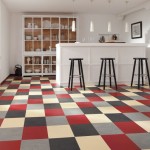Put yourself in your kid’s shoes and image your mom taking you to the doctor to get your hearing tested. You walk in and a person you’ve never seen before tells you to go into a small room and starts to stick weird stuff in your ears and tells you to listen to different sounds… Pretty scary right? But that’s not all.

To make things worse, your mom gets frustrated because you keep moving and the person performing the test tries to calm you down by making funny faces and asking you more questions while all you want is to get out of that weird room. Well, this is how most children feel during a hearing test.
Getting your child prepared for what to expect during can help make the experience more enjoyable for both of you. In addition, when your child is prepared, the audiologist will likely be more able to get a more accurate result in a short amount of time, hence avoiding having to repeat the test.
Now you may be wondering about how to get your child prepared. When it comes to hearing tests Melbourne clinics offer different methods, which some may involve the cooperation of your child.
Hearing Tests for Newborns
There are two methods available at hearing tests Melbourne clinics for newborns.
- Auditory Brainstem Response (ABR) – a test that measures the brain activity in response to the sounds. During the testing, sticker electrode wires are attached to the child’s head and clicking sounds are transmitted to the ear via small earphones placed in the ears. The test does not involve pain and takes only a few minutes.
- Otoacoustic Emission (OAE) – a test that measures the automatic response of the ear. It uses a small earphone that is inserted into the child’s ear and soft tones are presented to the ear. It is also a painless and fast test.
Although these two do not require responses from the baby, they must remain quiet during the test for reliable results.
Hearing Tests for Infants
Testing for infants include.
- Visual Reinforcement Audiometry – sounds are presented through speakers while the audiologist observes the child for an indication that he/she is hearing the sound. During this test, the child is usually held by a parent and it may be difficult to obtain reliable responses.
- Behavioral Audiometry – in this test sounds are presented through speakers and lighted and/or animated toys are used to ensure the child is hearing the sound. It does require a certain level of cooperation from the child.
Hearing Tests for Toddlers
- Conditioned Play Audiometry – during this test, the child wears headphones, hold a toy and listens to the instructions – they usually include subtle orders that refer to the toy and what the child is to do with it. This test requires cooperation from the child.
- Visual Reinforcement Audiometry – depending on the age of the toddler, visual reinforcement audiometry may be used together with sounds that are transmitted through headphones or small earphones.
Hearing Tests for Older Children
- Pure tone audiometry – a test performed in older kids who are mature enough to keep the headphones on and respond redily to the sounds. During this testing, the audiologist plays beeps at different pitches and volumes in the child’s ear and the child is asked to respond in some way when they hear the sound.
Preparing Your Child for a Hearing Test
According to experts, there are several things you can do to get your child ready for a hearing test.
- To get your kid used to having something in the ears, start putting headphones or earbuds on him/her while he/she is playing. You can play music through the headphone as long as it is not loud.
- Teach your child to repeat words to you. For example, ask him/her to say ice cream, football, hotdog. If your child is too young to repeat words, then ask him/her ‘where is your mouth? Where are your eyes?’ while having them listen and point.
- Teach your child how to play the ‘listening game’. Cover your mouth and say ’beep beep’s and have him/her to do something every time he/she hear it (toss a block for example).
You will be amazed how big a difference these small things can make for your child when he/she is undergoing a hearing test.


